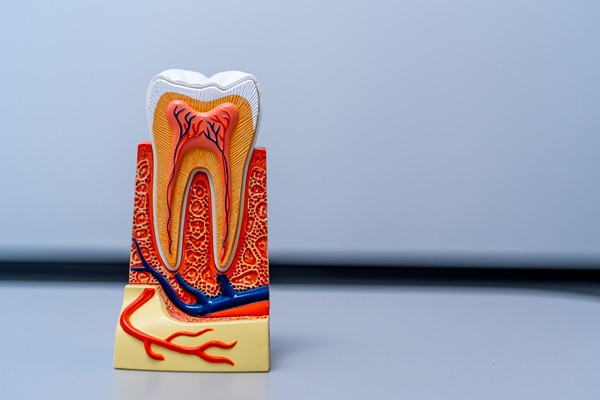Understanding Endodontics: A Guide to Root Canal Therapy

Endodontics is derived from the Greek words "endos" which means within, and "odont," meaning tooth. This dental discipline centers on the study and treatment of the tooth pulp as well as tissues around the root of the teeth. The most common treatment in endodontics is root canal treatment, which is often associated with pain. However, recent advances in dental technology and anesthetics have made root canal treatments virtually painless and quite effective at saving damaged teeth.
Endodontics: An overview of root canals
Endodontics deals with problems in the inner portion of the tooth where the pulp chamber and root canals contain the tooth pulp (nerves, connective tissue, and blood vessels). Endodontic treatment is necessary to avoid further tooth loss and infection caused by repeated dental procedures, trauma, and cracks.
Root canal treatment usually begins with an examination to determine the extent of pulpal damage. X-rays of the teeth and surrounding tissue are used to search for signs of infection or damage. Patients may present with symptoms requiring root canal treatment such as discoloration of teeth, bleeding gums around a tooth, spontaneous or persistent pain in the teeth and gums, or prolonged sensitivity.
The root canal procedure
Root canal therapy is an extensive procedure that may require one or two visits depending on the severity of the case. The procedure entails the following steps:
Administration of anesthetics
Local anesthetics are given to the numbed area around the affected tooth to minimize the pain. Subsequently, a small protective layer called a dental dam is placed over the tooth surface to isolate the tooth and keep it from saliva during treatment.
Accessing the pulp chamber
The endodontist will drill a small incision on the crown of the teeth to access the pulp chamber. This access point allows the removal of inflamed or infected pulp tissue and the cleaning of root canals.
Removal of infected tissue
Special tooth instruments are used to extricate the pulp from the chamber and root canals. The dental professional cleans and shapes these canals to prepare them for filling. Irrigation solutions are usually used at this stage to clean the canals and debris.
Filling the canals
Once the canals are dry and clean, they are filled with a biocompatible material (usually gutta-percha). The root canals are sealed with an adhesive cement. Sealing the canals prevents the re-entry of the bacteria and additional infection.
Restoring the tooth
The tooth is restored to its original form, look, and function with a filling and crown after the root canal treatment. Removing the pulp from the tooth weakens its structure. Dental restoration protects the teeth from additional harm and restores their functionality.
In summary
Root canal therapy is used primarily to save teeth that would otherwise have to be extracted. By removing the infected, inflamed pulpal tissue, the endodontist can preserve the tooth structure. Myths about root canal treatment abound, but understanding the details of this endodontics procedure can help alleviate those fears and help people get the treatment they need.
Request an appointment here: https://santarosaendodontics.com or call Santa Rosa Endodontics at (707) 706-2143 for an appointment in our Santa Rosa office.
Check out what others are saying about our dental services on Yelp: What is an Endodontist in Santa Rosa, CA.
Recent Posts
A non-surgical root canal is an endodontic procedure known for preserving a tooth affected by severe decay, infection, or trauma, all without incisions in the gum tissue. Many patients become anxious when they hear the term "root canal," yet modern techniques can provide a gentler experience than expected. Endodontists often recommend this treatment when a…
A general dentist can perform basic tasks in tooth care, such as X-rays, oral examinations, filling cavities, and extractions. However, patients may be referred to an endodontist for more complex work, such as certain root canals. When is it likely for a dentist to refer a patient to this dental specialist?While a filling can fix…
Root canal treatment is often the first line of defense for treating teeth with compromised pulp chambers. The pulp chamber is the innermost layer of a tooth, and it stores nerves, blood vessels, and connective tissues. The chamber is sealed off from the rest of the tooth to protect it against bacteria and other irritants…
A root canal can preserve and strengthen a severely damaged or infected tooth. When seeing a root canal dentist, asking informed questions can provide clarity, ease concerns, and improve treatment outcomes. Understanding the procedure helps make the experience more comfortable and ensures you are well-prepared for each step.While each patient's situation is unique, the following…


